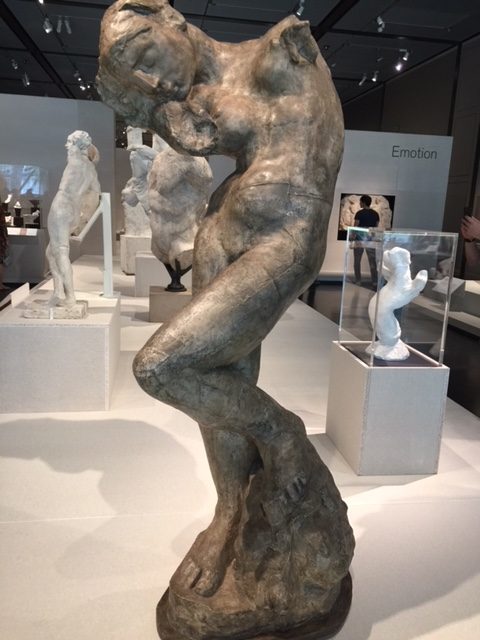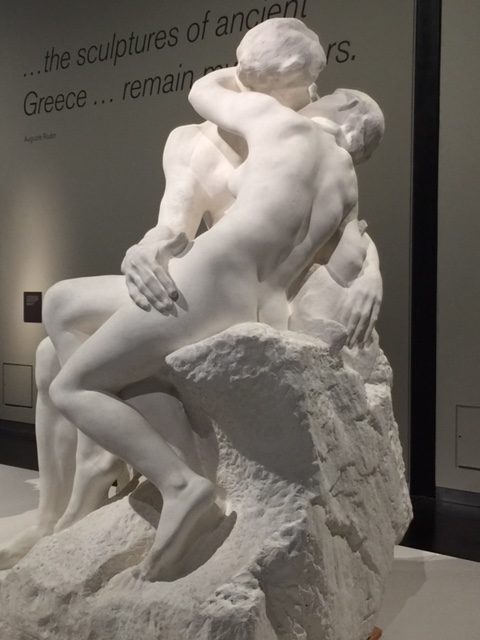
Yes, I am a romantic to the core. Yes, you all know this by now. But I had the pleasure of being in “romantic heaven” on Sunday. Well, actually, it was the British Museum. And while any visit to the British Museum is a little slice of paradise, this particular visit was even more so because it was Rodin and the Art of Ancient Greece.
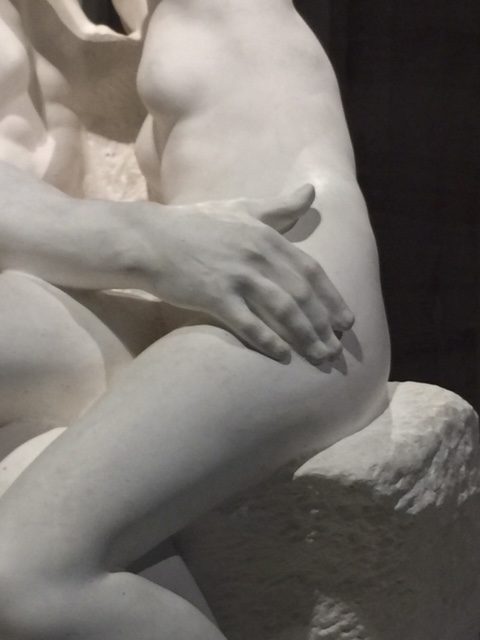
One of my very favourite sculptures ever is Rodin’s The Kiss. And one of my very favourite exhibitions to visit regularly in the British Museum in the Elgin Marbles.
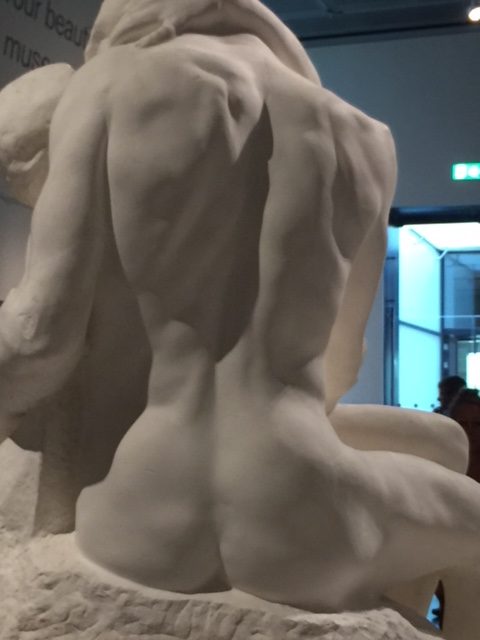
Imagine my delight when this special exhibition is an intermingling of the two with the focus on how the Parthenon and a trip to the British Museum influenced all of Rodin’s work.
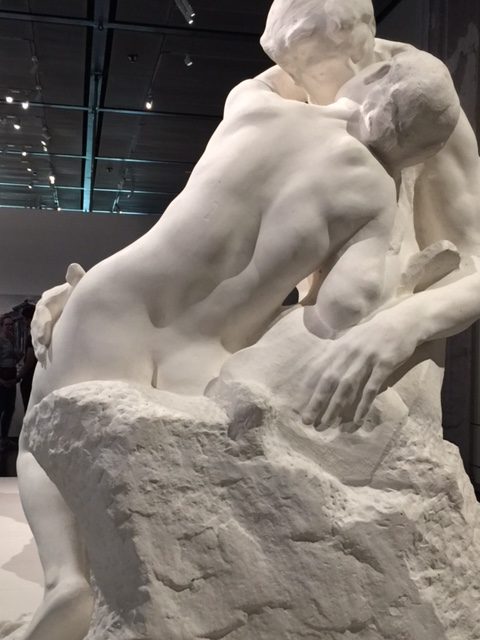
Seeing the art of both set next to each other was a total delight. But best of all, was the wonderful insights into the heart of a creative genius by another creative genius, Rainer Maria Rilke, who was briefly Rodin’s secretary.
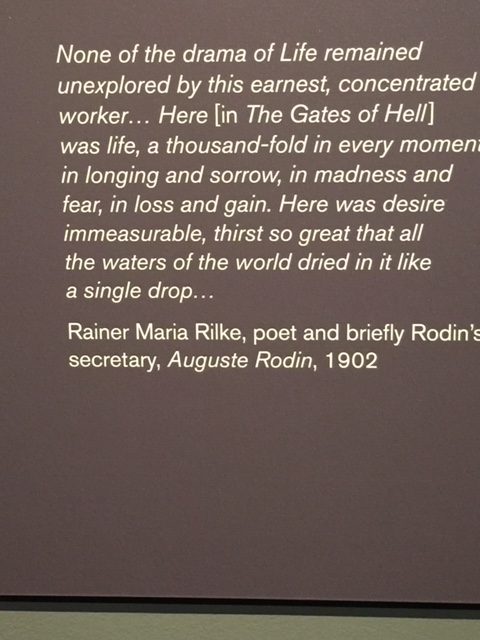
I guess you could say I was actually a little closer to romantic hell that I was heaven. I Much of Rodin’s work is an extension of his Gates of Hell, which was to be a representation of Dante’s Inferno. (Sadly other than a projection, only this clay representation of that masterpiece was on display. See the link for a better view)
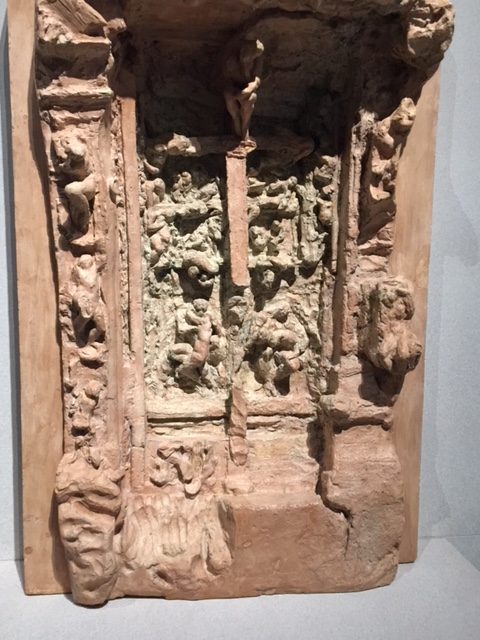
For a better view and more details about Rodin’s Gates of Hell check out the Youtube link.
I was fascinated by the darkness that Rodin never shied away from in his work. As a writer, I feel it’s my duty also not to shy away from the darkness, even, maybe most especially, when I really want to.
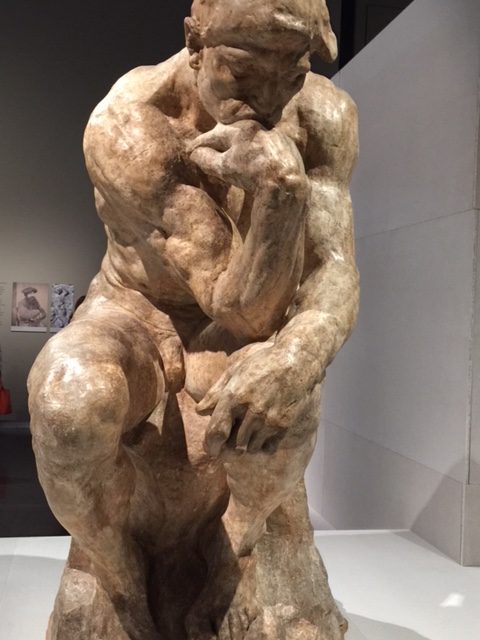
The sculpture was commissioned in 1880 for a museum that was never built. But Rodin was so pulled into the effort, so inspired by it, that he continue to work on it and off until his death in 1917. Many of his most famous sculptures, including The Kiss and The Thinker (who was originally Dante sitting in the tympanum of the sculpture) were inspired by and taken from the Gates of Hell.
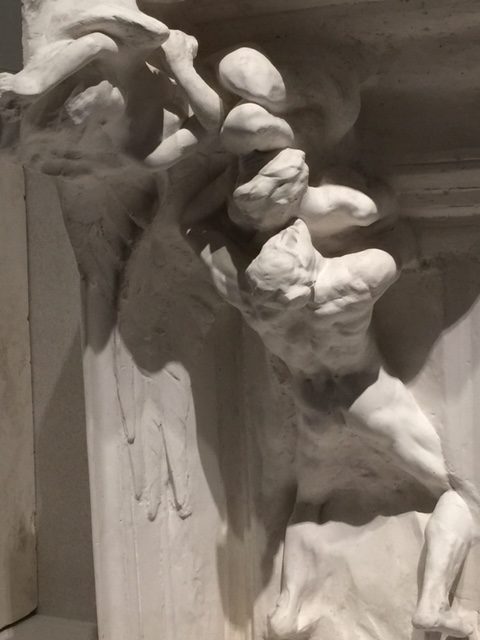
I was fascinated by the darkness that Rodin never shied away from in his work. As a writer, I feel it’s my duty also not to shy away from the darkness, even, maybe most especially, when I really want to.
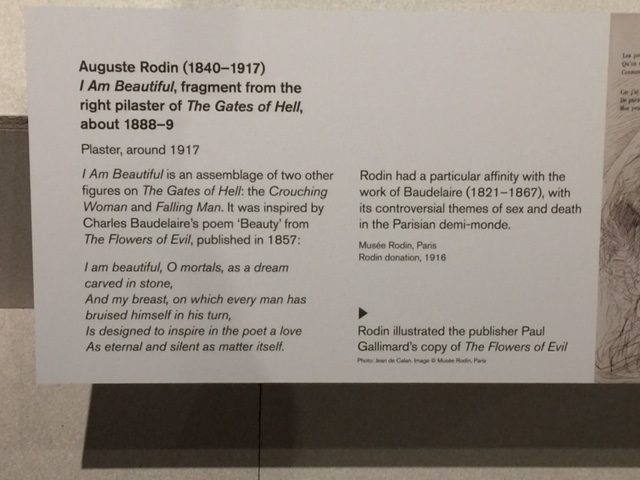
That got me thinking that perhaps I am inspired by my own gates of hell. Perhaps we all are.
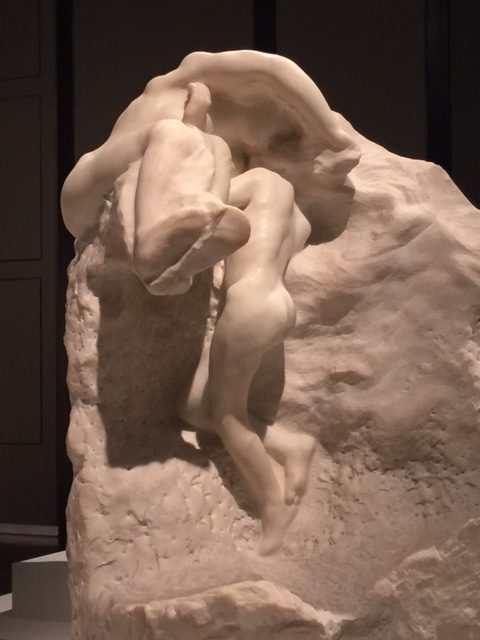
The recurring themes of darkness in my stories are, as was Rodin’s Gates of Hell, less about sin and punishment than they are about the human condition, my own condition, the fragmenting of self and the constant reworking of that self. Which raises a question I have often asked myself. Are we inspired by the darkness to seek out the light, or is it only the presence of the darkness that allows us to see the light at all?
